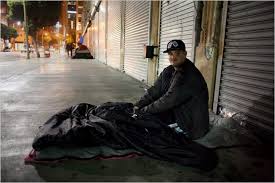UNITED STATES—The Wylie Empire included a hotel in a prime location on Skid Row—the elegantly named Palmer House on Wall St. (conveniently around the corner from the police station). A lot of work was going on in spring of 1991. It was being painted and refurbished after one manager had been replaced. His replacement, a sweet fellow who favored Daisy Dukes and halter tops was the person really holding things together down there.
The ousted manager had been keeping two receipt books. One for Wylie and one for the folks who would pay a little more for such luxuries and privacy as the Palmer afforded.
A crew of painters and plasterers was working like mad to bring the old fleabag up to code, and Jim sent me to MacArthur Park to get Social Security Cards for the crew.
We got a chuckle as he forked over the dough and provided me a list of the employees’ names. The MacArthur Park Social Security Administration branch was staffed by guys calling out “ID . . . ID,” as they strolled the grass around the lake. The enterprise seemed very haphazard and yet it was highly organized. One of them, with a paunch and a polo shirt, took my order for 12 social security cards. And he disappeared. I strolled around the park for half an hour, wondering if Wylie had lost his $360. And then the man in the polo-shirt reappeared.
He handed me a dozen crisply printed Social Security Cards, the name and numbers superimposed on a stylized American eagle in hues of blue and palest red. I wondered how many of these numbers would recruit someone’s deceased loved one back into the workforce.
The cards looked great. Then I looked at my own Social Security card, and it didn’t have an eagle on it. I told Wylie about my suspicions; I am nothing if not a meticulous criminal. Wylie thought it over and threw the cards away before distributing them to the crew. It later turned out that the MacArthur Park print shop was up on the very latest social security card design.
In the process of fixing up the Palmer House, it started looking nice. The old fleabag even caught someone’s eye.
As I said, my boss’ business was often on edge, maxed out on the latest fluke acquisition (like a lumber baron’s mansion on Alvarado Terrance) and mortgage payments. When a buyer came around and offered a good price for the Palmer House—a few millions— Wylie was happy and wagging his tail.
The offer came from a charity that wanted to provide housing for poor folk. The man who represented them had a blondish gray goatee never wore a tie. He could have been a maraca player in a tropical combo, but he had that expression I had begun to detect in all the charity-minded people I’d brushed against in my work for Wylie—beatific but preoccupied.
As the Palmer House deal was being swiftly consummated, Jim had me take a roll of papers to a downtown office. Blueprints or something. It was a hushed building and the charity’s office was on one of the highest floors. At the top I was met by the beatific, but preoccupied man with the goatee and handed over the cylinder of papers to a secretary.
On the wall of the office I spied a series of pictures. Overhead views of Wall St. showed all the properties up and down the street already in possession of the charity—all except the Palmer House.
With glee I beheld the charity’s large-scale vision. It was a revelation. I like ambition and they had done something ambitious, putting together these separate properties and amassing heaven knows how many rooms. They were well on their way to solving the downtown homelessness situation. Blown away by this discovery, I took the hushed elevator back down to earth.
Soon as Wylie got wind of what I had seen, he flipped.
Grady Miller is a humorist. He lives in Hollywood






